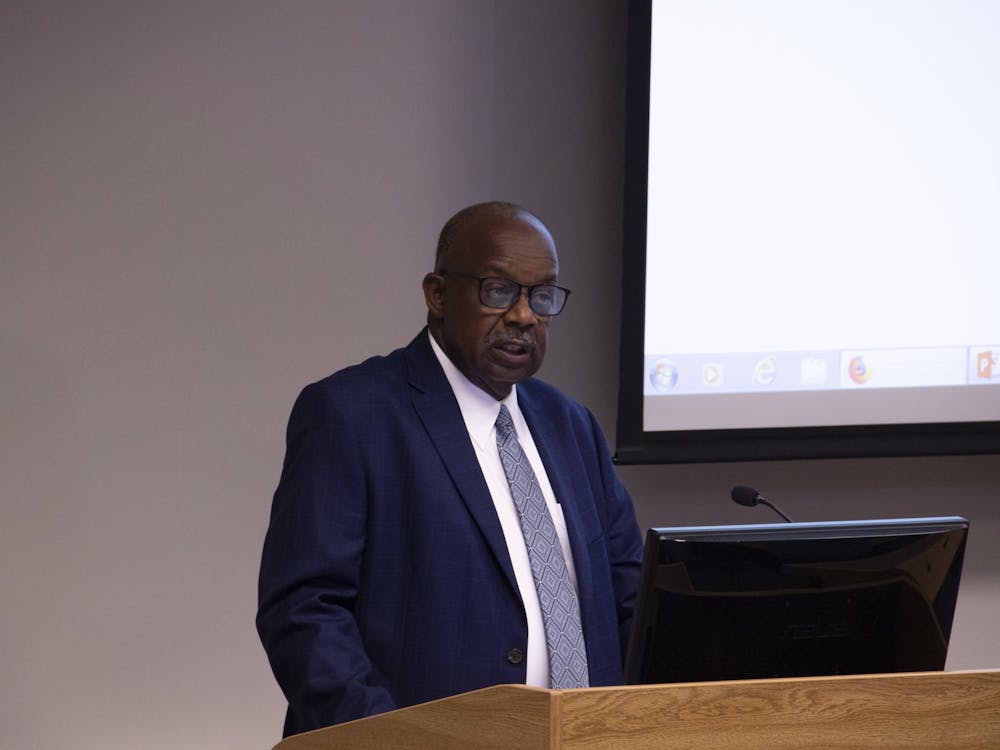Duke might get its new graduate housing built for free.
The proposed developer for the University’s new graduate housing has offered to pay for the construction and profit by renting the apartments to students, Executive Vice President Tallman Trask told The Chronicle after Thursday’s Academic Council meeting.
“This one is different, because you actually had somebody coming saying, ‘If you can figure out where to put this, I will build this for free for you’,” Trask told the council during the meeting, “which is not an offer we’ve ever had before.”
The development will consist of about 700 affordable, single-person studio apartments, he said, adding that the developer, a European company, has built housing using a similar model in England, Ireland and Australia. The buildings will be up to Duke’s construction and exterior standards.
Trask told The Chronicle that he would not reveal the name of the developer since the University has not officially contracted with them.
The future of the development is not certain, he noted to the Council, since the proposed developer has added “a wrinkle to the contract” that Duke will not accept. He told The Chronicle that the dispute had to do with the process by which the developer could sell the apartments.
Trask’s remarks came in response to an anonymous question submitted to the Council. The question, posed on the Council’s website, asks how Duke studied the need for on-campus graduate housing and selected the site, especially when there is unused land available on Central Campus.
The current plan sets the apartments in the woods near the Fuqua School of Business, and some students and professors have raised concerns about the sustainability of the project. The development is slated to include a “sustainable greenspace” but will involve clearing trees at the construction site.
Trask said that removing trees is “always a tradeoff,” noting that Duke recently purchased 27 acres of forest that was going to be torn down and developed. He added that the University had looked at a different site, across Towerview Road, but decided that the environmental consequences of cutting down the trees there would be too great.
Regarding Central Campus, he said that the University wants to wait until it is certain what it wants to do with the land.
“We were trying to preserve Central for a big, comprehensive idea,” he said, referencing the findings of the Future of Central Campus task force.
More parking woes
Council Chair Kerry Haynie, associate professor of political science and African & African American studies, discussed another anonymous question—this time about game-day parking.
The question asked whether there are “circumstances in which faculty and staff must relinquish the right to access the parking lots/garages for which they have paid to park,” noting that faculty and staff use their spots for assorted purposes outside of regular hours.
Although faculty are never required to move their vehicles out of lots during athletic events, they may be blocked from entering a lot because of heavy traffic, Vice President for Administration Kyle Cavanaugh wrote in a response on the Academic Council website. In this case, the closest parking is made available.
“Given the concerns that have been expressed, we will take a comprehensive review of game day parking to explore additional options that reduce any impact upon faculty,” he wrote.
Haynie suggested that faculty and staff who lose access to a lot should be given credit for the next time they renew their parking passes, with the cost falling on the Iron Dukes or the Athletic Department.
In Other Business
The council members discussed Duke Kunshan University in an executive session that was closed to the press.
The discussion focused on the implications of the Chinese government’s actions in Hong Kong and other areas, and whether such actions might cause Duke to “rethink [its] engagement in regards to DKU,” Haynie told The Chronicle after the meeting.
There are limits to China’s behavior, he said, but they are largely related to academic freedom and freedom of expression at DKU.
“We’re not in the business of monitoring Chinese government policy writ large,” he said. “The concern of this council is Chinese activities vis-à-vis DKU.”
Kimberly Hewitt, the new vice president for institutional equity in the Office of Institutional Equity, gave a presentation about the office’s mission and priorities. She said that the office wants to review its policies, help people understand the process of reporting harassment and hire two additional investigators and a case manager intake specialist, among other goals.
Hewitt said that the office has also formed a council of leaders to discuss equity, at President Vincent Price’s request.
Among those on the council are Cavanaugh; Gary Bennett, vice provost for undergraduate education; and Mary Pat McMahon, vice provost/vice president for campus life, Hewitt said.
Correction: Trask told The Chronicle that the dispute had to do with the process by which the developer could sell the apartments, not by which the developer will rent out apartments to students. The Chronicle regrets the error.
Get The Chronicle straight to your inbox
Signup for our weekly newsletter. Cancel at any time.
Matthew Griffin was editor-in-chief of The Chronicle's 116th volume.

